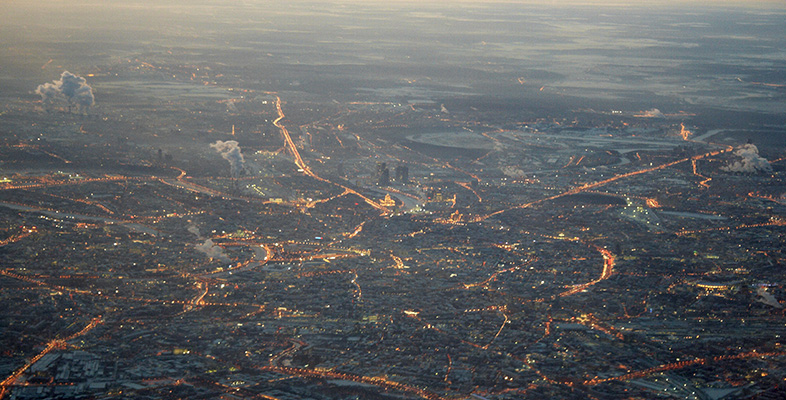1.2 Natural or human?
There is also another dimension to the problem of ‘the environment’, which is linked to ideas of nature and naturalness. Does a reference to ‘the environment’ include humans and their activities? The dictionary definitions I presented suggest not – the environment is something surrounding, but it is not part of humans. There are some quite extended philosophical arguments on whether humans are part of nature or the environment, which we won’t explore here, but it is important to be aware that these debates exist. Returning to Figure 1 helps give us a sense of the debates.
The solitary tree sits in a grassy landscape. Some would say it is not a natural environment, even if the individual elements themselves (the grass, tree and insects) are natural. This environment only exists in this particular arrangement because of ancient clearances of woodland for farming and subsequent sheep and deer grazing on the chalk hills in Hertfordshire, UK. A more natural environment here would probably be forest, but this too depends how far back in time one is prepared to consider. Would you include the marine environment that created the chalk bedrock the most ‘natural’ environment?
The stand of trees in the second image is a picture from the Ardennes area in Belgium. The environment here is also not entirely natural: the straight planting lines and uniform age of the trees betray human influence in planting for a purpose.
Few would argue the European environment is wholly natural. Perhaps the view of the Earth from space is the only offering of ‘the environment’, but with pollution and atmospheric changes this too might be considered no longer a natural environment.
Indeed some argue that we have moved into the Anthropocene era (Crutzen and Stoermer, 2000): a new era of Earth’s history where, for the first time, humans are dominant in shaping Earth processes and systems, giving rise to a shift in thinking about human–environment relationships. In 2011, The Economist noted this debate on its front cover [Tip: hold Ctrl and click a link to open it in a new tab. (Hide tip)] .
The Economist also produced this short video of an interview with the ecologist Erle Ellis where he gives his ideas and examples about the Anthropocene era, and the ways in which environments are influenced by humans:
You can access this video here: Tea with Erle Ellis on the Anthropocene
Some of Erle Ellis’s views are quite challenging and the ideas have implications for what is natural and how environments should be managed. There is no agreement on whether we have entered the Anthropocene or when it started, but for many it does have an intuitive appeal as assessments of environmental change at many scales continue to point to direct human influences.
